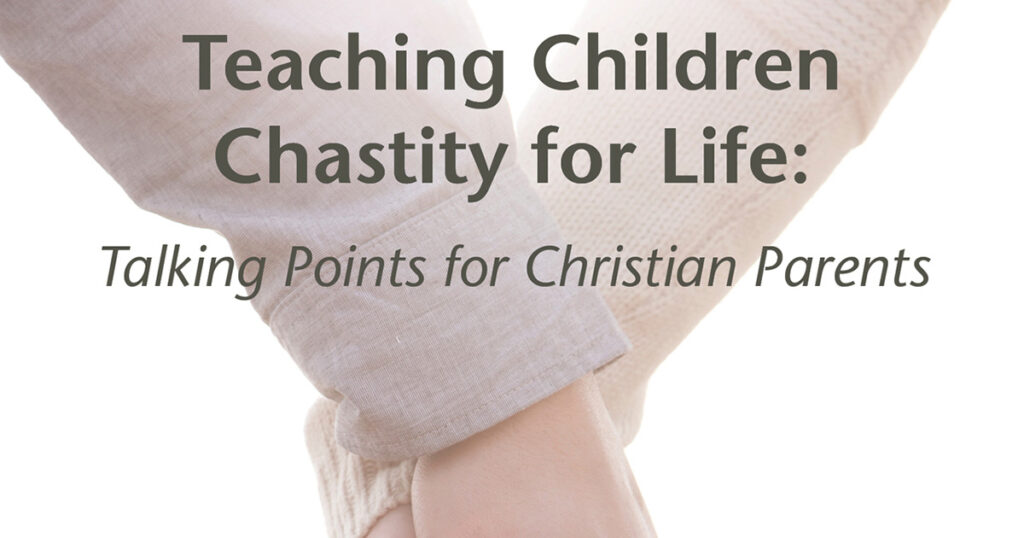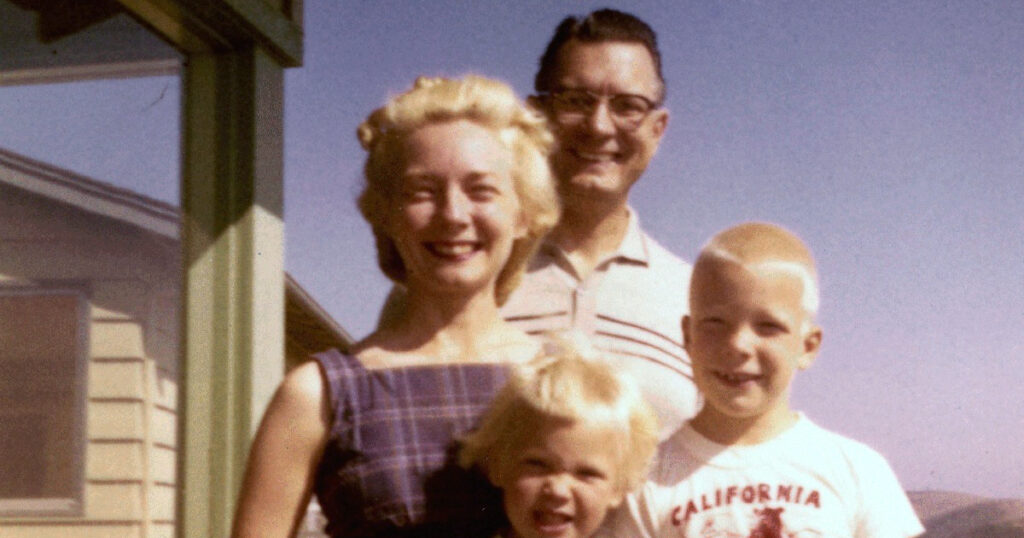By Stephanie Neugebauer
Parents past and present have agonized over finding the right words, the best approach and the most natural (read: least awkward) way to talk to their children about sex. When do you start? Where do you even begin? What should your message be, and how can you get that message across most effectively? Should you instill fear of premarital pregnancy or provoke disgust at sexually transmitted infections? Should you reframe the conversation in positive terms, telling them, “Your virginity is a gift that only you can give your spouse — and it’s the best wedding present ever!”
Some, or even all, of these approaches might “work.” Depending on the child and on other outside influences, your child just might make it to their wedding night a virgin. But is that the only goal of Christian sex education?
The stakes are high — for our children, for the church. They always have been and always will be. I don’t claim to have all the answers. Yet what I do know with certainty is that the Christian sexual ethic must go beyond merely preaching and teaching abstinence until marriage.
“True love waits.” It’s what I and so many others were told as teenagers. And true love might truly wait. But what if it doesn’t? Is the beauty of God-pleasing sexuality gone forever? True love might truly wait. But what if rape or other sexual abuse gets in its way? True love might truly wait. But what if it waits — and then fails to deliver on its promise of lifelong love and sexual intimacy within marriage?
Recently, many Christians have sought to reclaim and emphasize the word “chastity” over and against words like “purity,” “abstinence” and “virginity.” This is good. Words matter; so do the ideas and theology behind them.
What is chastity? Chastity can be defined as submitting the whole self — particularly one’s sexual self — to God’s good design and purposes. Chastity applies to everyone: single or married, male or female, young or old. Chastity seeks to use God’s good gift of sexuality in line with His intention, and in light of His creation and His redemption. Virginity, once lost, is lost forever, but chastity, through repentance and renewal, can always be regained.
Chastity recognizes our sexuality as a gift from God — for enjoyment, marital union and procreation. Are there parameters? Sure there are! God’s intent, as it always has been, is for sexual activity to take place within the one-flesh union of husband and wife.
Sadly, the corruption of human nature by original sin means that humans are inclined to take this good gift and misuse it, “at times, or in ways, or in degrees, which [God] has forbidden.”[1] Our sexual form, functions and desires are all prone to the warp of sin.
So how does an emphasis on chastity change the way we talk about sex with our kids? In soft focus, it shifts the entire tone and tempo of our conversations. It casts light on the goodness and beauty of our sexual design, embracing that which is virtuous while veiling that which is mysterious. It gives us a lifestyle to strive for rather than a single act to avoid. It rightly acknowledges our human frailty, and it covers us in forgiveness rather than shame when we sin.
What does teaching chastity look like in the particulars? Parents will always need to tailor their teaching to each family’s context and particular needs, but here are a few general thoughts:
Start early — and then never stop. When children are very young, talk to them about how their bodies are good gifts from God. Tell them that certain parts of their bodies are meant to be private because they have a special purpose (1 Cor. 12:22–25). Teach them that from the beginning, God created male and female for each other and for the blessing of future generations (Gen. 2:18–25).
Pray for and with your children. Consider including your children’s future spouses and their future children in your prayers, and ask God to help them know sexual wholeness, married or single, as they live “chaste and decent lives.”
Model marriage (and life) in Christ. A sexually chaste life extends into marriage and always extols God’s institution of marriage (Heb. 13:4). Hold up real-life examples of godly marriage and godly singleness, and show them by your own marriage relationship what it looks like when “husband and wife love and honor each other.”
Teach them that sexual integrity applies to thoughts and words, as well as deeds. Chastity includes self-control over the impulse to denigrate our own bodies or objectify another’s. The Sixth Commandment captivates our imaginations and desires as much as it directs our outward actions (Matt. 5:27–28).
Consume TV, movies and music alongside your children. Train their eyes to be open to modern media’s (and thus, modern culture’s) typical hopeless expression of sexual freedom and uninhibited desires. Better yet, go in pursuit of art and media that reveal the beauty of living by God’s design, sexually and otherwise.
Don’t avoid uncomfortable conversations or questions. Welcome wise outside voices, but don’t shirk your role or pass your responsibility off to pediatricians, classroom teachers or youth group leaders. And certainly don’t leave it to their peers.
Do all you can to earn and maintain their trust. Strive to be worthy of their confidence. If they know that you always have their best interest at heart, even words that sound like law will ring like love. Knowing that your counsel is not a list of arbitrary rules but a roadmap for a joyful and peace-filled life will reinforce the greater reality that their heavenly Father’s blueprint — yes, even for human sexuality — is for their good.
Finally, teach them to rely on God’s help and forgiveness. Remind them again and again that their purity — both bodily and spiritually — is not contingent on their perfection, but rather on Christ, who purifies them wholly and completely (1 John 1:9). “Perfect chastity,” C.S. Lewis reminds us, “will not be attained by any merely human effort. For however important chastity may be, this process trains us in habits of the soul which are more important still. It cures our illusions about ourselves and teaches us to depend on God.”[2] If you teach your children to depend on God in all things, you will have taught them well.
[1] C.S. Lewis, The Screwtape Letters (New York: HarperCollins, 2001), 44.
[2] C.S. Lewis, Mere Christianity (New York: HarperCollins, 2000), 101.
To learn more about the Christian concept of chastity, check out the entire January 2021 issue of LW; the 2022 CTCR document A Chaste and Decent Life: An Update to ‘Human Sexuality 1981’; and KFUO’s “Coffee Hour” interview with the Rev. Dr. Joel Biermann.

This article originally appeared in the April 2024 issue of The Lutheran Witness.






Needs to be out there 👍👍
Very good article even for grandparents especially in today’s world